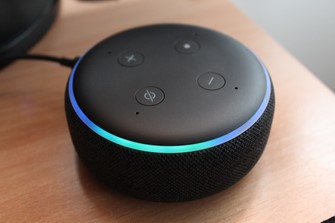Tyler Coia is an entrepreneur in the technology industry and is keenly aware of the intricate impact of AI on our daily lives. In the following article, Tyler J. Coia discusses the factual dimensions of AI’s influence, with an exploration of the tangible transformations brought forth by this extraordinary technology.
Artificial intelligence currently pervades most aspects of the average first-world life, yet many users remain unaware of just how strongly AI impacts them. This is surprising, as AI has become so ubiquitous that many users cannot escape encountering it several times a day.
The most visible form of AI is its application in smart devices, ranging from phones and watches to smart home devices such as Alexa. In addition to these, nearly anyone who checks their email or searches Google will encounter AI in the form of spam filters and personalized ads. Artificial intelligence also protects users by powering cybersecurity software such as virus scanners.
Tyler J. Coia explains that with some users voicing concerns about privacy and data protection, there grows a need for increased awareness regarding the impact of artificial intelligence on everyday life in order to better drive the conversation. It is easiest to start with the most visible applications.
Tyler Coia Explains AI in Personal Assistants and Smart Devices
Although increasing numbers of people find it difficult to leave the house without their phone or smartwatch, not everyone is cognizant of the AI used to fulfill many of these devices’ functions. According to a Pew Research poll, roughly 44% of adults believe they rarely interact with AI at all. In reality, users are interacting with AI several times a day in numerous ways, including:
- Allowing their phone to use their location for updated weather reports
- Using a GPS that incorporates traffic updates to calculate travel times
- Asking questions of personal home assistants such as Alexa or Google Home
While the introduction of personal assistants such as Siri and Cortana certainly made AI more commonplace, some people use AI in ways once depicted only in futuristic movies. Fitness devices and sleep monitoring gadgets, for instance, will typically establish the user’s baseline in order to provide more finely tuned readings and future health recommendations.
Tyler J. Coia notes that as these products become more affordable, a future in which residents use AI to power their entire home may not be as far off as it once appeared. Many already use Alexa to power their lights and electronics, while Google Nest can learn and adapt to their preferred thermostat settings. Some homeowners even now own smart refrigerators, which can tell what they have in stock and make shopping lists accordingly.
Personalized Internet Use: A Double-Edged Sword
Tyler J. Coia notes that even simpler applications such as email would look very different without AI. Many users don’t realize that AI forms the backbone of their spam folder, filtering messages based on both content and on the types of emails a user typically deletes without reading. When a user crafts their own emails, services such as Grammarly base writing suggestions not only on language standards but also the emotional tone of the writing.
This attention to user preference spills over into nearly every corner of daily internet habits. Social media feeds curate content based on previous user interactions. Google auto-fills search queries based on recent topics of interest. Services like Spotify and Amazon base song and product suggestions on previous use. Netflix even fine-tunes recommendations based on what time of day a user typically prefers certain genres. These recommendations account for roughly 80% of what users watch.
Tyler Coia says that although certainly useful when desired, some users find this attention to user preference troublesome, raising concerns over privacy and data protection. A frequent target of skepticism is Google’s tailored advertising, which has become the target of antitrust lawsuits. Despite the valid nature of these concerns, however, AI paradoxically poses as much of a benefit to personal security as it does a threat.

Security Benefits of Artificial Intelligence
Privacy concerns aside, modern cybersecurity relies heavily on AI. Not only does anti-virus software use machine learning to identify potential threats, but corporate security networks use AI to automate threat responses when compromised. This means that those who voluntarily give personal information to online companies or social networks stand less threat of having that information stolen.
Tyler J. Coia says that on the subject of social media networks, machine learning can even protect users from emotional harm. Through the use of predictive modeling and natural language processing, intelligent algorithms can identify potentially abusive messages and hide them from other users as they await review by human moderators.
In addition to cybersecurity and the prevention of cyberbullying, machine learning-enabled devices and algorithms protect users in real life as well. This takes a number of forms, such as:
- Home security systems that can recognize family members on sight
- Smartphones with facial recognition such as Apple’s FaceID
- Banks that detect fraud based on purchase history and recent location
- Door locks that use voice recognition for an added layer of security
Conclusion
Tyler J. Coia explains that the impact of artificial intelligence on everyday life may raise concerns for some, and those deserve to be addressed. Nonetheless, AI has undoubtedly changed lives for the better by providing streamlined user experiences and enhanced security functions. These barely scrape the surface of how AI may impact users in the future, provided the public continues engaging in thoughtful discourse on the pros and cons of handing so much data over to an algorithm.









